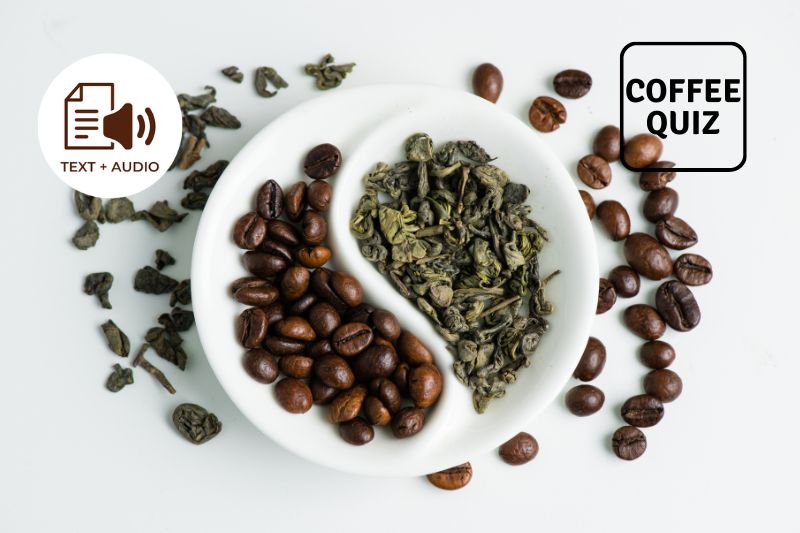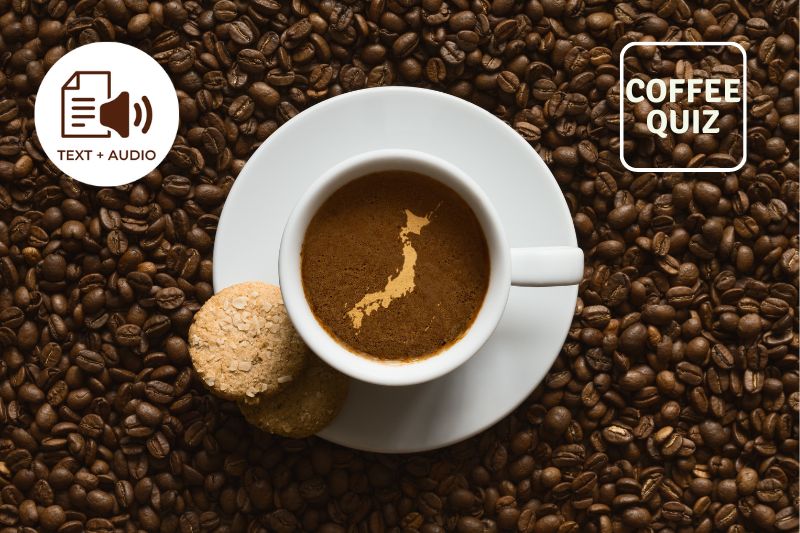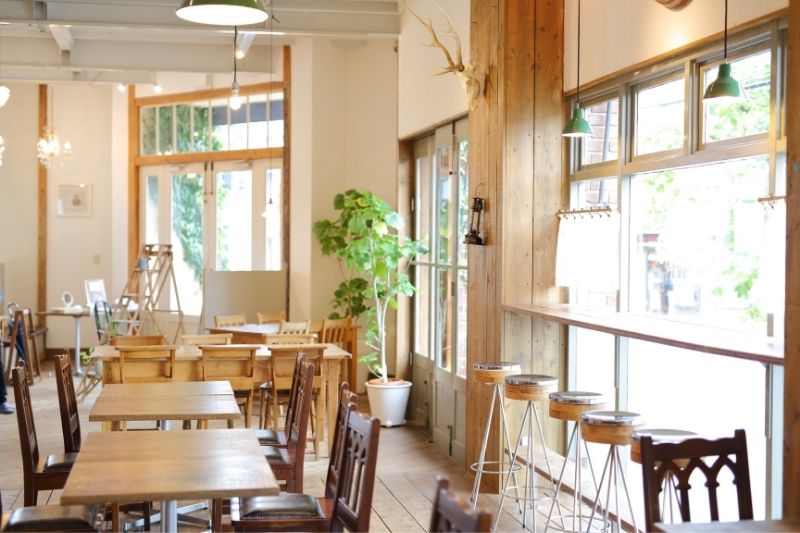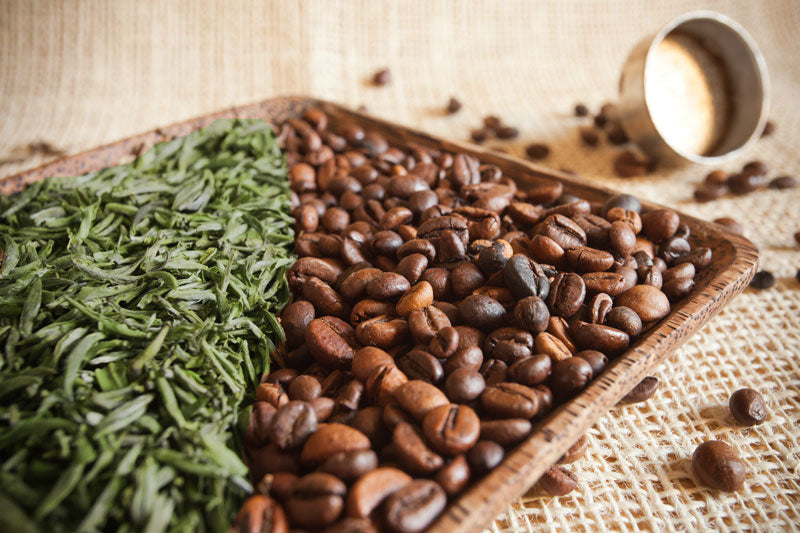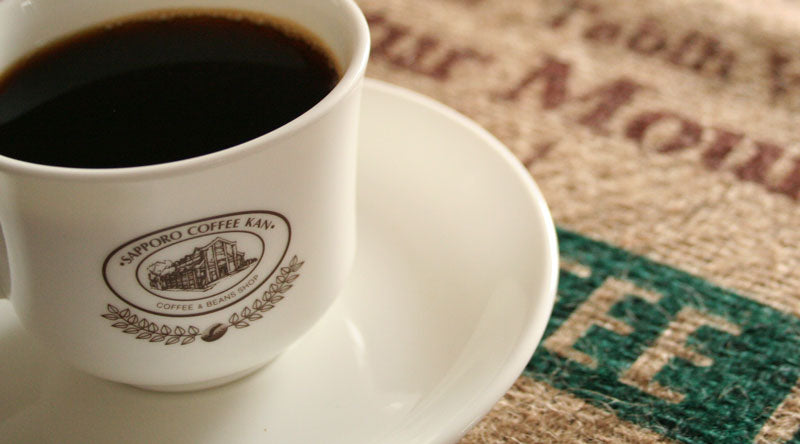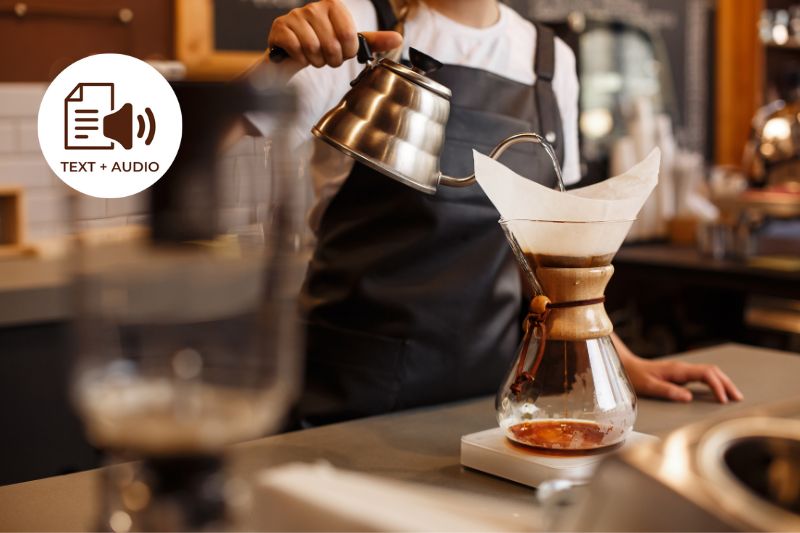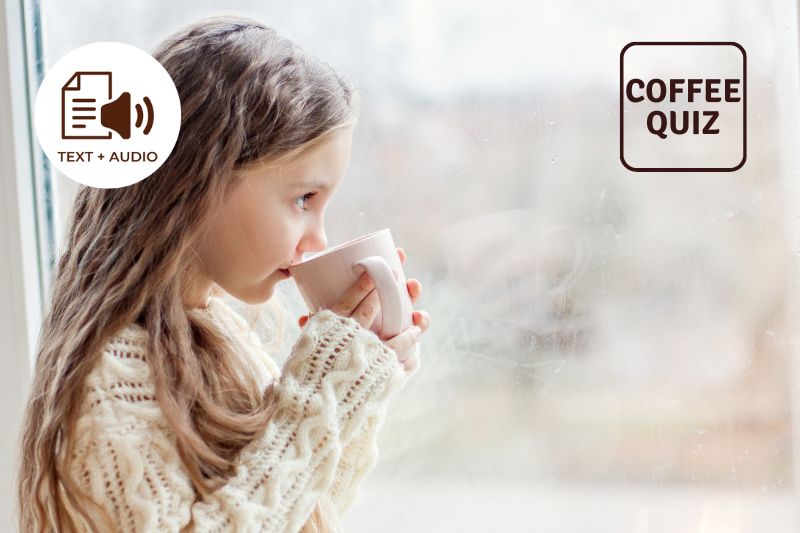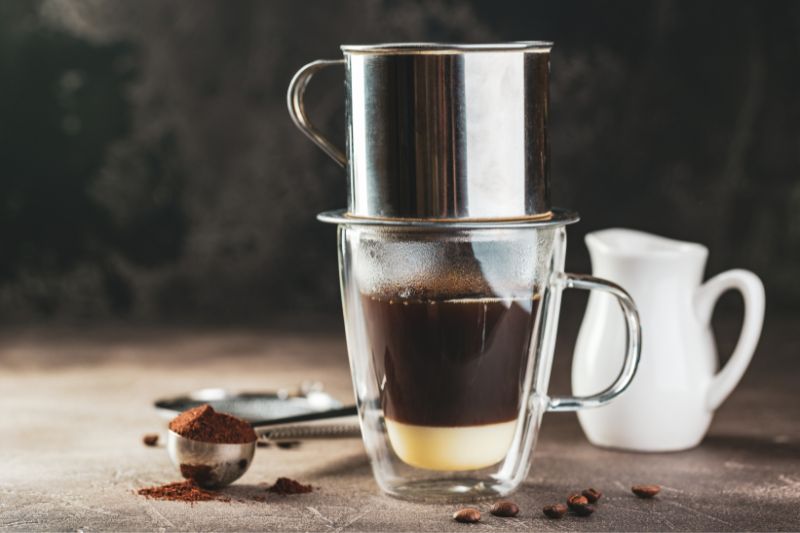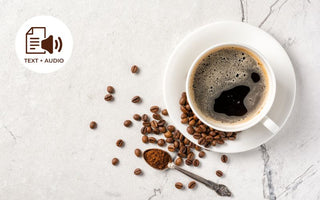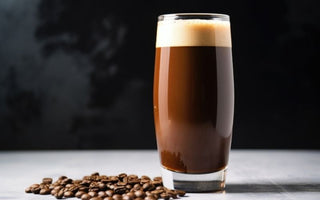Both beverages are drinks of choice during breakfast and can inspire the youth to learn how to craft these and continue the tradition masterfully. At the same time, tea and coffee baristas are making innovations to create new tastes and flavors.
Let's talk about how the Japanese drink tea and coffee before we dive into their differences.

How do Japanese drink coffee?
When Dutch traders brought coffee to Japan more than 300 years ago, coffee became popular in the 1930s and in the 1960s again (because of the lifting of the coffee ban) until now. Coffee is associated with Western culture, and many kissaten, cafés, and vending machines are still prevalent in Japan.
Canned coffee in konbini (Japanese convenience store) is the most popular way to get coffee because konbinis are often located in train stations and streets where busy people can easily purchase coffee while going to work.
When making iced coffee, just like with soda, ice first before pouring the coffee. A small amount of hot water is mixed with brewed coffee, so the iced coffee is still cold yet, the taste and brew can still be enjoyed well.
According to the Euromonitor market research, although most coffee sales are instant coffee, fresh ground coffee sales are growing. In this research, we may conclude that people are now routing for fresh ground coffee, whether sophisticated ground coffee or simple green coffee beans ready to roast. They want to taste these kinds of coffee in their homes, experiencing artisanal coffee during break time.

Despite coffee being an imported product to Japan, coffee drinking eventually became a culture itself. While Japanese tea has a tea ceremony, coffee drinking and making/eating chocolate have effects that make drinkers breathe and feel calm. With the experience of coffee shop baristas and enthusiasts turned into coffee shop owners, some just recently opened zen-like and traditional Japanese style cafés like the Kabuki and Omotesando Koffee (closed in Omotesando area since 2015 but opened international branches)
With the international coffee big chains and 3rd wave coffee, making and drinking coffee serves as an art and luxury. From using drip materials to espresso machines, access to artisanal coffee is easy, and with cute drawing/art on cup lattes, coffee drinking is fun.
How do Japanese drink tea?
Japanese tea-drinking, whether by doing a tea ceremony or drinking it inside the house, is delicate. Table manners are being practiced, like putting the saucer or small tray under the Japanese teacup (yunomi) and holding it with both hands when drinking the tea.
Tea came first in Japan than coffee. Ever since an envoy consisting of Buddhist scholars went to China during the Tang Dynasty, the Japanese are cultivating teas. Tea became a part of the Japanese culture despite the fact these leaves are imported from a neighbor with a different culture.

Tea ceremony is not just about tea tasting, but also appreciating the taste and flavor through one's sense. It shows hospitality to the guests. Foreigners can also participate in a tea ceremony.
The ideal ambiance for tea drinking is on a zen garden. Nevertheless, tea shops and kissatens are there to serve various teas and desserts. There are varieties and tea fruit fusions to adapt to the current trends since many young people don't have time to prepare freshly brewed tea.
Coffee vs. Tea in Japan
Caffeine content:
Coffee has stronger caffeine than tea, but tea has a shorter brewing time than coffee. Decaffeinated coffee is easier to find than decaf tea, but tea has only 5%-20% caffeine content from tea leaves.
Demographic and Trends:
In Japan, older people tend to drink green tea while younger are more into the coffee.
Consumption for tea decreases while on coffee, it increases. More Japanese drink coffee because they feel that traditional tea is old-fashioned, and they are busy to make their own fresh-brewed tea, unlike in coffee where they can buy canned ones on subways and convenient stores than ready-made tea drinks. Tea farming is also in decline as children of tea farmers are not interested in that field and want to work in higher-income cities.

Nowadays, to create a demand for green and black tea, tea farmers and businesses collaborate to target young workers and students by incorporating Japanese green teas, especially matcha, on drinks and are being served in coffee shops. There are flavors such as matcha latte, green tea cakes, and many varieties of green tea desserts and beverages. There is even a coffee-tea hybrid for young workers who find coffee very strong. Black teas on milk teas are trendy too and can be an alternative for coffee lattes.
Some big chain cafés serve both tea and coffee.
Gathering:
Drinking coffee is treated as a social event where people hang out, chat casually and gather their thoughts, while tea drinking is more like an event to celebrate and show the art of serving and entertaining family and guests.
Health benefits:
Both drinks help people concentrate, lose weight, and fight diseases. However, what makes green tea stand out from coffee is it has antioxidants. Coffee also has these but still very few than green tea.
Taste:
Both are delicious if mixed with milk, chocolate, and sweets. In the natural state, coffee has a strong bitter taste, while the famous green tea is milder and has a bit sweet taste depending on the tea quality. Black tea has a strong bitter taste than tea but still milder than coffee.
Since both have powder forms, it's fun to make iced drinks at home and get creative with the ingredients like the famous dalgona coffee, milk tea with tapioca pearls or brown sugar, and iced green tea or maybe matcha milkshake.
--
Are you more of a coffee drinker or a tea drinker? Please share your thoughts and experiences with us! How do you find the taste of Japanese made coffee and tea?
This article was originally featured by T-Ching.
This post was first published in 2021 but it was updated in 2023 just for you.
Get Free Bonus Book


